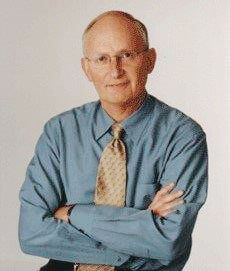One of my favorite Bible stories occurs in the book of Genesis, when we find Jacob (the third of the Jewish patriarchs) laboring tirelessly to win the hand of Rachel.
As the story progresses, Jacob ends up with two wives – Rachel, and her sister, Leah. Understanding that Jacob prefered Rachel, God sought to compensate Leah by helping her bear four sons. Regarding the fourth son, the Bible says, “And Leah conceived again and bore a son, and declared, ‘This time, I will thank God.’ Therefore, she named him Judah (in Hebrew, Yehudah), which comes from the Hebrew root “todah,” meaning “thanks.”
It is not surprising that the Jewish people, called the “Yehudim” or “Judeans,” are identified by Judah. One of the hallmarks of Judaism has been its ongoing commitment to praise and thank God for His continued interest in the national destiny of the Jewish people.
Still, when Leah chose her son’s name, thanking God for the gift of children, she demonstrated a keen awareness that God’s role is not limited to intervention in our collective affairs. Rather, it can be felt by each of us in our own lives.
Leah was not simply thanking God on behalf of her people. She was uttering a personal prayer of thanksgiving. This was the first use of thank you in the Bible.
The original day of a Thanksgiving celebration by a whole people has a long history to it.
In Judaism, it started more than 4500 years ago, when the Israelites celebrated their harvest festival of tabernacles, called Sukkot. The book of Leviticus says, “When you gather in the fruit of the land in the fall, you shall have a feast unto God, and you shall rejoice for seven days.”
The first North American thanksgiving happened in 1578, in Newfoundland. In the 1600s, Samuel de Chaplain, and the French settlers who came with him, established a huge thanksgiving celebration marking the fall harvest.
In 1621, the pilgrims came to our country, and the 46 of them who survived the terrible winter planted their crops and prayed for an abundant harvest, which God granted them. Gov. Bradford declared a three-day holiday of Thanksgiving, and the holiday was off and running.
It took almost 200 years for Thanksgiving to catch on as a national holiday.
In 1789, President George Washington captured the Thanksgiving spirit when, in his presidential proclamation, he said, “It is the duty to acknowledge the providence of the Almighty God and be grateful to God for His benefits.” Thus, the first official American Thanksgiving began.
As someone born in Canada, our custom was to celebrate Thanksgiving during October, when, in 1957, the Canadian parliament permanently deemed the second Monday of October as a day of general Thanksgiving.
Since leaving Canada, to study for the rabbinate in the 1960s, I have enjoyed the season of Thanksgiving and its American customs. I have witnessed the Macy’s Day Thanksgiving Parade, in the seated gallery, and have been privileged to celebrate with family and friends at a sacred Thanksgiving Day meal filled with blessing, tasteful food, fun and games, and football.
In Judaism, there is a daily morning prayer required to be recited when waking up. The prayer says thank you to God for the gift of being able to enjoy another day.
During every Sabbath in Jewish tradition, we recite Psalm 92: “It is good to give thanks to God and sing praises to God’s name.” A Jewish legend says that Adam and Eve sang these words on the first Sabbath they experienced, after what must have been a dark night, which they must have thought could have been permanent.
As we gather once again to celebrate Thanksgiving, I hope that everyone continues to develop a discipline of mindfulness and attentiveness to what is happening in those fragile minutes of our lives, and to continue developing a daily discipline of gratitude for all of our fortune and bounty.
The irony of life is that it takes a serious threat to our blessings to make us thankful for them. I encourage you to work hard at the art of saying thank you, and remember that we can never be truly grateful until we make it possible for others to experience gratitude as well.
God has given us so much. May the Eternal Blessed One continue to give all of us grateful hearts that will only work to increase our desire to help others.
I wish you a happy and joyous holiday of gratitude.
ED. NOTE: Rabbi Isaacs is rabbi at Beth Judah Temple, Wildwood. He invites questions emailed to his website, www.rabbiron.com.








